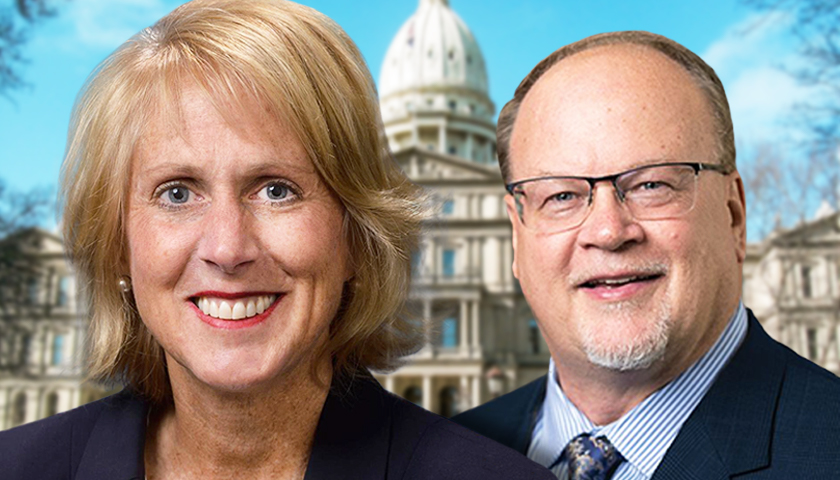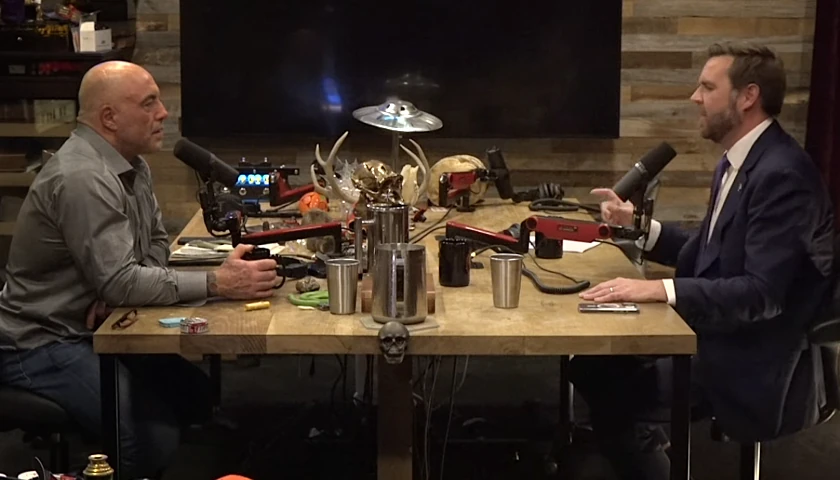State Senators Kim LaSata (R-MI-Coloma) and Jim Runestad (R-MI-White Lake) introduced legislation on Wednesday that would allow students in Michigan’s colleges and universities the right to opt out of vaccine mandates imposed by those institutions.
The bill would create a range of medical and non-medical exceptions to requirements for students at any higher-education institution in Michigan to get any kind of vaccine. Permissible non-medical reasons for refusal include religious convictions as well as objection “to that immunization or immunizations generally.”
Currently, many at the Great Lake State’s colleges and universities have no recourse if they wish to decline COVID-19 vaccination. As transmission of the novel coronavirus’ especially contagious delta variant has heightened, numerous colleges across the state are requiring vaccination.
Among public universities, the University of Michigan, Michigan State University, Grand Valley State University and Wayne State University have all instituted vaccine mandates for students and staff. Those schools have all imposed indoor mask-wearing requirements as well, irrespective of a student or staffer’s vaccination status.
A Michigan State University employee litigated against that school’s vaccine mandate, saying she has natural immunity from an earlier COVID infection, but U.S. District Judge Paul Maloney declined to temporarily halt MSU’s new rule. In a decision this Tuesday, the judge determined that “an immediate and irreparable injury” does not result from the school’s policy. Maloney has scheduled a hearing on MSU’s mandate for Sept. 22, 2021, at 9:00 a.m. at the Federal Building, 410 W. Michigan Ave. in Kalamazoo.
The judge has nonetheless issued a 14-day halt to Western Michigan University (WMU)’s requirement that all of its student-athletes get the COVID jab. Students who filed that lawsuit did so on the grounds that the mandate violated their religious beliefs. The four members of the WMU’s soccer team, Emily Dahl, Hannah Redoute, Bailey Korhorn and Morgan Otteson, faced permanent removal from the team for not getting the vaccine before this week.
Should a rule created by a public university infringe on religious rights, declared Maloney, it must be “justified by a compelling interest” and also be “narrowly tailored.” The judge held that neither is the case with WMU’s mandate for student-athletes.
“When law forces an individual to choose between following her religious beliefs or forfeiting benefits, the law places a substantial burden on the individual’s free exercise of religion,” the judge wrote.
If the proposal offered by LaSata and Runestad were to become law, it would prohibit higher-education institutions from denying a student’s enrollment, housing or instruction based on his or her refusal of immunization as long as he or she requests an exemption.
The bill further requires that a vaccine-waiver-request form provided by a college or university to students desiring exemptions succinctly explain the benefits of immunization and the risks of refusal in language approved by the Michigan Department of Health and Human Services.
Earlier this summer, shortly after the U.S. Centers for Disease Control and Prevention reversed themselves on masks to recommend that even fully vaccinated people wear them indoors, LaSata introduced a bill to disallow the state Department of Health and Human Services to require any public-school student to receive a COVID shot, wear a mask or get a coronavirus test as a condition of attending school or participating in extracurricular activities. That legislation, part of a package of related bills, has been referred to the Committee on Education and Career Readiness and has not yet come up for a vote.
“The past year has been very challenging for our state and especially our students,” said LaSata in a statement. “As Michigan reopens from the pandemic and residents are getting back to their normal lives, it is important that the right of all students to have equal access to education is protected, regardless of their COVID vaccination status or their family’s own personal decision whether to wear masks.”
LaSata and Runestad’s vaccine opt-out bill would take effect one month after enactment, though that event seems unlikely at present, as it would require the signature of Gov. Gretchen Whitmer (D) who hasn’t indicated any resistance to college vaccine mandates.
– – –
Bradley Vasoli is a reporter at The Michigan Star and The Star News Network. Follow Brad on Twitter at @BVasoli. Email tips to [email protected].
Photo “Kim LaSata” by Senator Kim LaSata. Photo “Jim Runestad” by Senator Jim Runestad.








